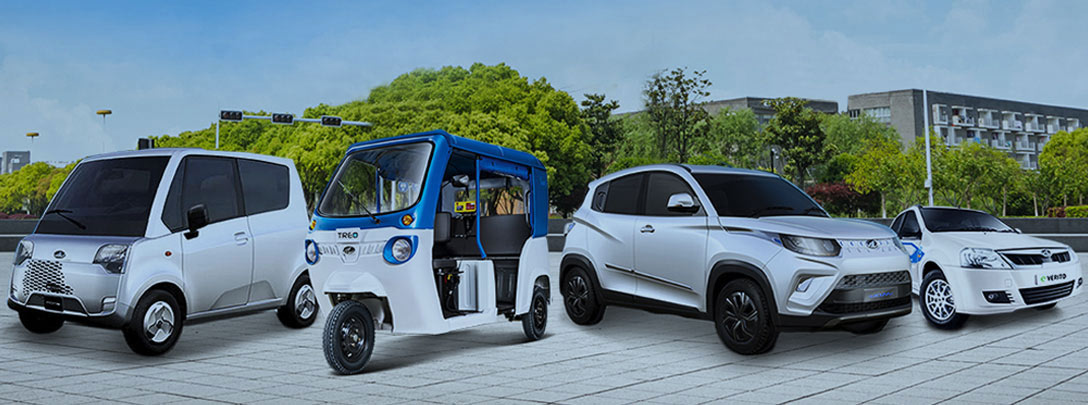The Indian economy is becoming rapidly urban. According to the World Bank, over 400 million Indians will relocate to urban areas by 2050. In fact, by 2030, India will have 7 mega cities with a population of over 7 million.
Over the last five years, shared mobility has grown exponentially in the country. Increased urbanisation has seen an increase in corporate commute, and for a majority of Indians, public transport is the preferred option for first and last mile commutes. Seizing the opportunity, Mahindra Electric Mobility Limited, the wholly owned subsidiary of Mahindra & Mahindra Ltd., pioneered electric mobility in India by designing India’s first electric three-wheeler platform with the Mahindra Treo. The Treo addresses the issue of short-distance commutes – a few kilometres or less – to get from a place of origin to the nearest public transportation hub.
Building an EV ecosystem
Mahindra Electric is also the first company in the automobiles and components sector in India, and the second worldwide to get approval from Science Based Targets (SBT) for the reduction in greenhouse gas emissions. However, it is not just an electric vehicle manufacturer but a complete EV technology solutions provider. Proof of its expertise in the EV space is the MESMA 48 V platform for electric three-wheelers and small cars, as well as the indigenously built MESMA 350 V powertrain that is set to electrify global SUVs in Korea and Europe. Mahindra Electric’s Next Generation Mobility (NEMO) platform for connected mobility supports an entire EV ecosystem and helps fleet operations to plan their EV rides more efficiently, and individuals to remotely monitor their cars’ parameters. The company’s range of ME chargers are also proof of its developing EV charging ecosystem.
Future solutions
Later this year, Mahindra Electric will be launching the three-seater ‘Atom’, an electric quadricycle which is spacious, practical, and futuristic. The first and last mile commute will be further enhanced by the electric quadricycle that offers clean and connected mobility solutions.
Also on the anvil is a portfolio of new products specific to each segment they cater to – the existing Treo range will soon have a cargo variant. Mahindra’s eKUV, with a good price positioning, is geared to appeal to the value- and cost-conscious personal and fleet segments. The electric XUV300, which will offer a range of 375km on a full charge, will cater to the personal mobility space.
Creating a sustainable mobility sector
Today, India is leading the world in electric three-wheeler vehicles’ sales. With over a decade of experience clocking over 230 million kilometres on Indian roads, and a good understanding of the economics of EVs, Mahindra Electric believes that the shift towards electric mobility in India is inevitable.
While it’s taken a decade for EVs to prove themselves to be stable and reliable, and they still have a long way to go, automakers are making significant progress in addressing key pain points for consumers who are considering a switch from their conventional vehicles – the cost of acquisition. This coming decade will see EVs becoming more popular and driving profits both to OEMs and the environment. Significant progress has been made on battery technology and in addressing customers’ range anxiety issues.
India’s commitment to sustainable development and green mobility options will mean that the country must consider shared and multi-modal electric mobility solutions for its citizens. A combination of measures needs to be implemented to achieve a cleaner transport sector – planned and better-designed cities, non-motorised transport facilities, more public transport and on-road fleets that are, or are converted to, all-electric vehicles.
EVs will meet the surging demand for mobility by providing clean mobility solutions and will play a key role in decarbonising Indian cities. In fact, with petrol and diesel becoming more and more expensive, it is expected that EVs will account for over half of the total car sales by 2035.
And we are ready to play our part in driving sustainable mobility in the country for a greener planet.
You can also share your thoughts in the Comments section below!




